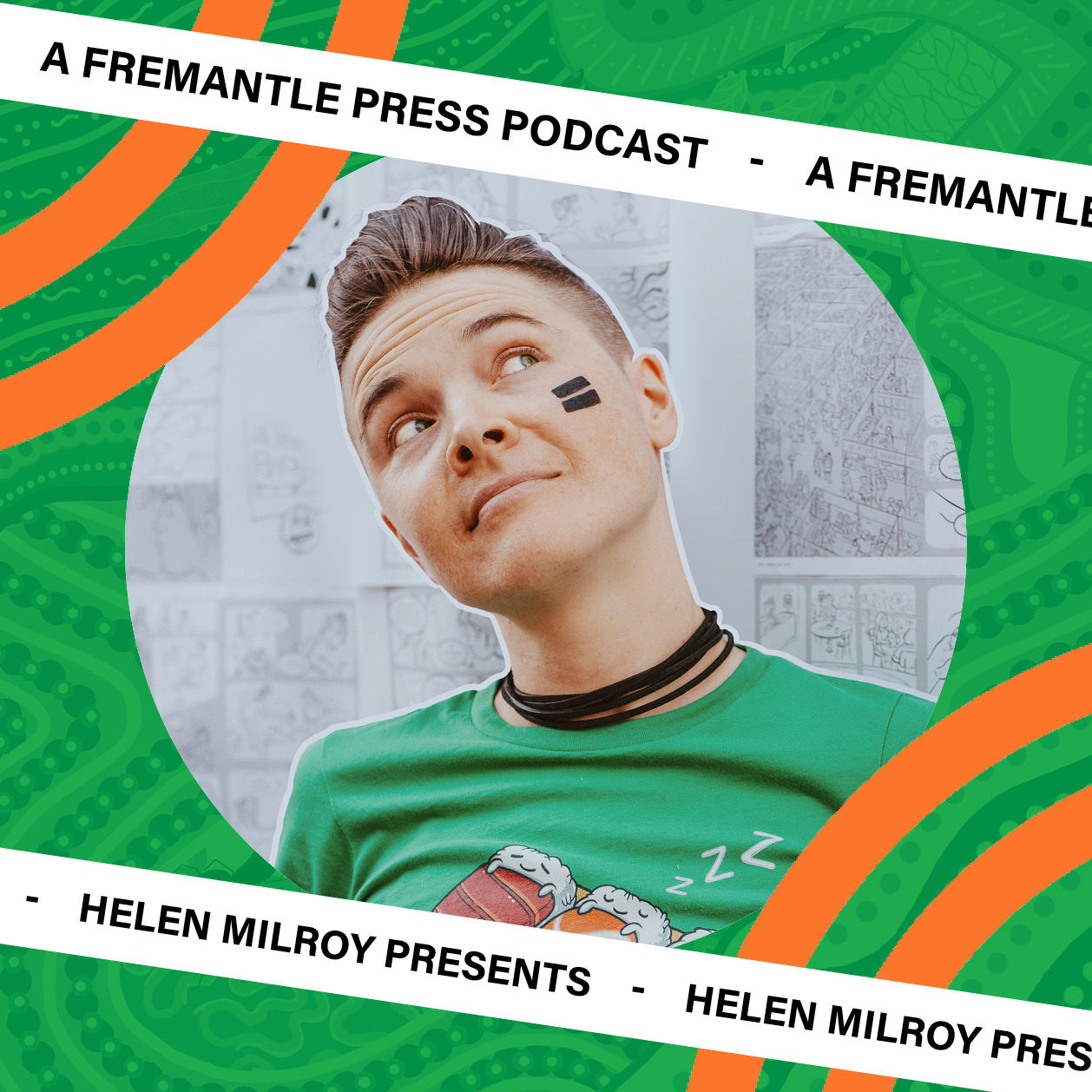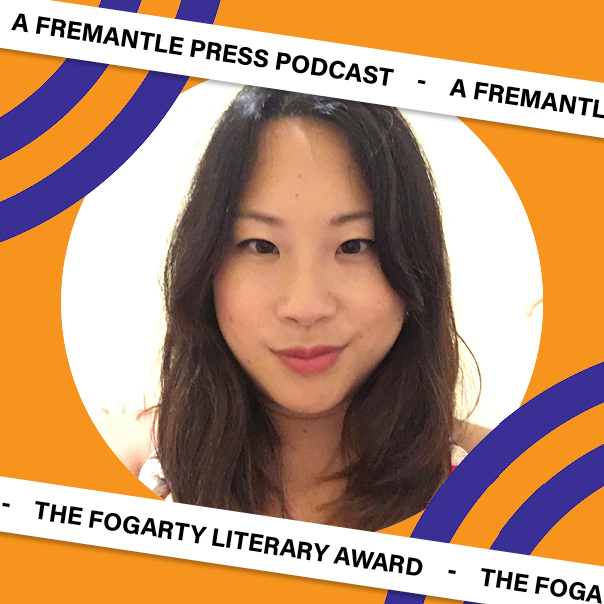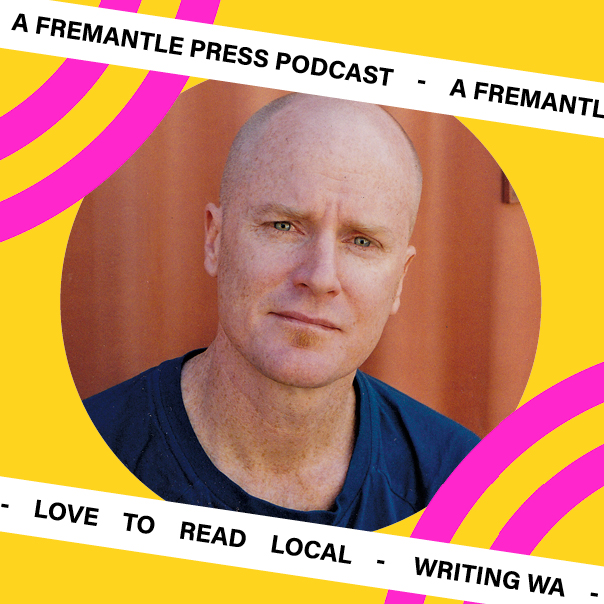Episode Transcript
[00:00:13] Speaker A: Hello and welcome to the Fremantle Press podcast. Today we are recording on Walial up in Wajak Noongar Budja and I'd like to acknowledge our first storytellers along with noongar elders past and present.
My name is Clare Miller and I'm here with fiction publisher Georgia Richter to introduce you to one of four writers shortlisted for the 2024 City of Fremantle Hungerford Award. Hello Georgia.
[00:00:38] Speaker B: Hi Clare. This is very exciting. It is.
[00:00:40] Speaker A: It's great to be here again. And today's guest is Jerga Galao Waldias with his manuscript trials of hope.
[00:00:48] Speaker B: Trials of Hope is a fascinating and complex autobiographical work where the reader is rewarded with the gorgeous, evocative content at the same time as I think they learn a lot about what it is for a boy to grow up in rural Ethiopia, the work's got a really unusual structure which I think helps the reader to understand aspects of Ethiopia's history and her diaspora. And because it also includes poems that are written in English and Amharic, there's also real visual experience to reading this text as well. Trials of hope allows a really rich dive into another culture that I think many readers won't be familiar with, and it does so in a way that really invites empathy and understanding.
[00:01:35] Speaker A: Yerga is a writer, researcher and poet from Lalibella, Ethiopia. He currently lives in Borlau, Perth in Western Australia, where he is a senior lecturer at the Centre for Human Rights Education at Curtin University.
His amharic poetry has been published and performed widely on stage and radio in Ethiopia, and his works in English have been published in anthologies and journals including Westerly Unlimited Futures and Stories of Perth seizure. He was the 2023 Red Room Poetry emerging poet in residence and one of 30 poets featured in Red Room's 30 in 30 national Australian Poetry Month celebrations.
Jerga, welcome to the podcast and congratulations on making it onto the shortlist. Tell us about your manuscript.
[00:02:27] Speaker C: Thank you. My manuscript is a life story. My story.
It narrates my life through different episodes in different stages of my life, and those episodes are presented with poetry and the poems appear between different stages of the prose and it narrates my life from a young boy, a shepherd boy, growing up in rural Ethiopia and passing through education and coming here as a human rights academic. It's also a story of my country and my people. It tells a story of a country that has its own greatness and as well as tragedies and hopes and all coming together in the life of one person, narrated through poetry and prose. That basically is my book and it's.
[00:03:29] Speaker A: A dual language piece. Would you be able to tell us how to say the title of it in both Amharic and in English?
[00:03:37] Speaker C: Sure. The title in Amharic is yet as far fatena, which is translated as trials of hope, because it narrates a story of hope and also trials that are involved with hope. It's really kind of unique in a way. It tells the story of my experience, the african experience, the ethiopian experience, quite different from the perception so many people have in the west, including Australia.
It tells a story of triumph, joy and happiness. But eventually, that life being translated, and eventually, in a process of trying to accommodate what is foreign and also is considered important, there is something that is missing, that is dying out, and there's also an attempt to recapture and to bring the past, it is spiritual poetry and prose to the present and the future. So it tells basically that type of story.
[00:04:40] Speaker A: So is that why it was important to be in dual language?
[00:04:45] Speaker C: Yes, it's important to be in dual language. Firstly, because, you know, I grew up writing poetry since childhood. I always write poems in Amharic. When I was a shepherd, when I was a health assistant, when I was a young preacher or a student, a human rights activist or a security guard, or an academic and writer, poetry always existed with me, and I always write poems in Amharic. I do that also because. Because every language has its own spirit, and the Amharic language transmits a spirit of the ethiopian tradition and culture, which is rich in language. And poems in Ethiopia are seen as expressions or languages or utterances of our soul. We use poetry to express the mysterious and the very deep nature that is within us, within our environment, and also within the divine that we believe in, in our culture. And because of that, poems are regarded as kind of high level literature. And I thought writing in that language is important because if we really believe places like Australia are multicultural, they also have to be multilingual, because those languages embody the world. The experience of people I come from and to give life to those languages is really important because it enriches lives here in Australia and elsewhere.
[00:06:14] Speaker A: And from that explanation, I can't imagine you writing your memoir without poetry and without Harika in it as well.
[00:06:23] Speaker C: Yes, yes. Because as a human rights academic, also studying and working in a university, I kind of am fortunate to find the language, the concept, to be able to represent my experience in different cultural settings in different ways. And that is why I think I find this to be possible for me to cross different worlds, different representations, cultures, and be able to transmit and talk about what I believe is best in both cultures.
[00:07:00] Speaker A: And now I just can't wait to hear you actually speaking your story out loud. And you've prepared a reading for us. Can you tell us a little bit about that?
[00:07:09] Speaker C: Sure. It's just the introduction. The will come about page long with one poem and I'll read that.
So it says.
It means welcome.
I offer you my life. Wind, fire and water, told here through poetry and prose. According to indigenous ethiopian philosophy, humans have seven characteristics that belong to their bodies and souls. Our flesh is embodied by wind, fire, water and soil. Our souls consist of language, knowledge and immortality. Our being mirrors the world we inhabit. It is said the world is made by the four forces of the the soil, which lies on water, the water on fire, and the fire on wind. Wind is the core, holding everything. Wind is very special, associated with its childhood. Young adults are fire, mature adults are water, and the elderly are soil. I am in the water stage. The freedom of wind and the energy of fire still blaze within me. Sometimes, though, increasingly I feel the weariness of soil approaching. I hope when soil comes from me I will feel more settled. The connection between humans and the natural world is tied into everything, even our God. In Giz God's name is it is created from two words, exi'a, lord or divine, and bihir, country or place. Ethiopian Christianity is indigenous, truly african. We are the second country in the world to become Christian around 300 AD. Our Bible has the largest number of books in the world. Our spiritual books about saints and holy people are immeasurable.
As the name Xiabhir suggests, it is a phase rooted in place. It is based on love towards others, where sin is not a word used to punish or demonize people, but a concept that describes moments where we fail to love each other. Ziab here is a different deity to the christian God of other places. Most references to God in this book shall use his ethiopian name. From ancient roots I was burst. From ancient roots I was torn. This is my story.
Kafafu kuch Bilan Sittalu Tarat Tarat Biyehima Sarat Galatandukan Kwakrimandargo Guatemu Benefas Unkalushan Kamisrak Ansiche Sato Hararun Kamara Vansichesatov Gondaranhe Lali Velan Betel Hagari Basaks and Farafar Yemi Samantha Zari Babad Middle Naho Basamai Kwakwith Fazzawal dem Kawaid in the evening when the cattle returned home, when the sky and the earth were brushed by twilight. We sat at the cliff wearing our gabi. And you said taraterates with excitement. I said, Yamasaret. So you spoke. Once upon a time, we looked like two stars sitting around the moon. The grandeur of line, the treachery of hyena, the courage of tiger, the smartness of ape, the injuries of ox, the innocence of sheep. When you told me Tarretaret. Nearby mountains that held up the sky, faraway villages that lit small fires became our friends and joined I, listening to the wind that carried your tail. When you finished, you said in Qokalish. I said mnaukilish. So you asked the riddle. I failed to answer. You demanded countries. From the north, I picked Adwa. From the south, I picked Awasa. From the east, I picked Harar. From the west, I picked Gondor. You asked for Laliballa. I told you, that is my heart. It cannot depart from me. I give you countries. Now give me the answer. As you finished the riddle, I laughed exceedingly till those who heard me felt jealous. Today I live in the land of others. Behold, my stars are dim, covered with smoke and a pile of cement. Among the noise of metals, your story cannot find a place to rest. And yet still, to my son I say, Tarat.
[00:12:37] Speaker B: Tarat yoga. That was so beautiful and so powerful. Thank you very much for sharing that with us. What does tarataret mean?
[00:12:48] Speaker C: Tarat. Tarat represents a form of storytelling. When elders often tell a story to their children or to children, they start by saying, tarat Tarot. It's like a way of creating excitement. A story is about to come, a story full of riddles and surprises and the people who listen respond, saying.
And that means coming to the basis, to the beginning, to where people become, like, emptied themselves to allow the story to fill them, to be filled in by the story that's about to be told. So Taratarat is a way of storytelling that is an oral transmission of stories and knowledge that's done from elders to youngsters across rural Ethiopia.
[00:13:37] Speaker B: That's gorgeous. And I bet those are words that have been used across millennia, right?
[00:13:44] Speaker C: It does, yes. It has been used for a long time.
[00:13:47] Speaker B: Such an ancient sort of declaration.
[00:13:49] Speaker C: Yes.
[00:13:50] Speaker B: It's so beautiful.
[00:13:51] Speaker C: Yes. Terat Tarat is like a chain that connects the past, the present and the future, where stories are told across generations. And within those stories are embodied spirits of ancestors and also generations that are not yet here but are to come.
[00:14:12] Speaker B: What a lovely declaration. And it's especially moving, I think, because that poem ends in the cement, in a city where the stars are not so visible and so it's really a declaration of where you have come from and where you are going. And that's so powerful.
[00:14:29] Speaker C: Absolutely. Because, you know, when I was in Ethiopia back home, our country is mountainous. There's a lot of mountains and gorges, ups and downs. We run to the mountains and often at night, sitting on the mountains watching sunset, and we hear stories from elders. And when that happens, when you see the sky, it is a clear sky and you start to see blazing stars and moon, which is beautiful and suddenly not possible to have that type of vision in places where there's a lot of pollution.
[00:15:09] Speaker B: I wonder if then in the writing back to your life and of your life, did you recall things and did the past become more vivid to you? Because the way you describe it just then makes it vivid for us.
[00:15:23] Speaker C: Absolutely. Because you see, the past always lives within us, but in a different world way. Because moments of our lives do not exist as static objects. They are rather dynamic. They have the capacity to help us interpret the world that we live in and they help us to live by.
And that's why I think it is really important to draw from that story. And I often tell my boy, my five year old boy at home, and he's so excited to hear stories every night.
[00:15:59] Speaker B: So beautiful. Thank you, Juerga.
[00:16:01] Speaker C: Thanks.
[00:16:03] Speaker B: So, Juerga, can you tell me what it means to you to make the 2024 shortlist for the City of Fremantle Hungerford award?
[00:16:12] Speaker C: At a personal level, I feel so happy and joyous.
As much as this is my story, but also this is a story of my people, it carries their language, the wisdom and experience that I gain from them. So in that sense, it's very important that this is acknowledged and recognized and is used for people who are like me and also others who might want to relate with this story.
Because when we live in Australia, coming here and living here, belonging is not simply existing here. Belonging includes the belonging of our culture, our language, our history and experience. There's no real belonging without really the stories that we come with, without having a place for them. The fact that publishers may be interested to give voice and space for this type of stories means that there is some hope or a kind of opening for a form of multicultural, multilingual and multistoried world that we want to see in Australia and beyond.
[00:17:19] Speaker B: I think you've just beautifully articulated for me the many reasons that your manuscript is on the shortlist. Because it was so distinctive and because it expanded my sense of what this country is and also how people who come from elsewhere are bringing entire nations with them. And that is something that we really need to open our eyes to. So I thank you for submitting it and for letting us read it. And again, for your very beautiful reading. It's just been amazing.
[00:17:50] Speaker C: Thank you for giving me the opportunity as well. That's wonderful.
[00:17:55] Speaker A: Yoga. I wish you the very best of luck on Thursday the 24 October as you're waiting at Fremantle Art Centre to hear whether or not you've won the City of Fremantle Hungerford award. If you'd like to join us. And yoga tickets are free and available from the Fremantle Press website.


